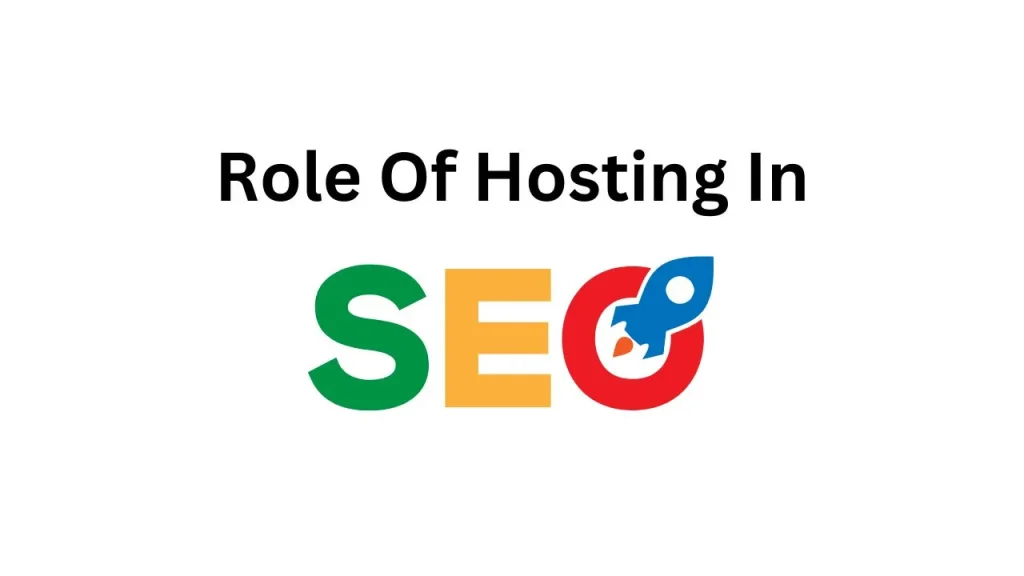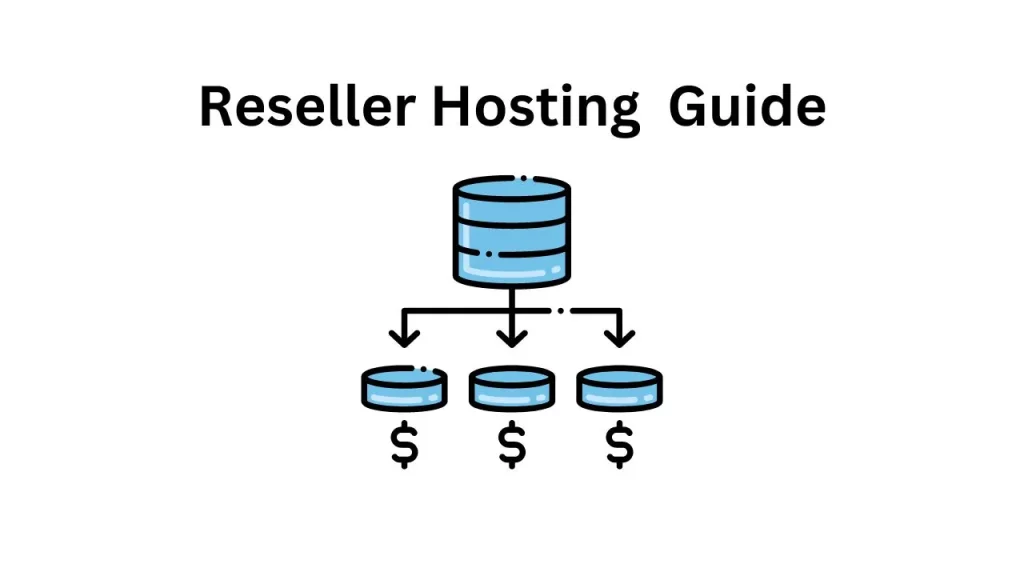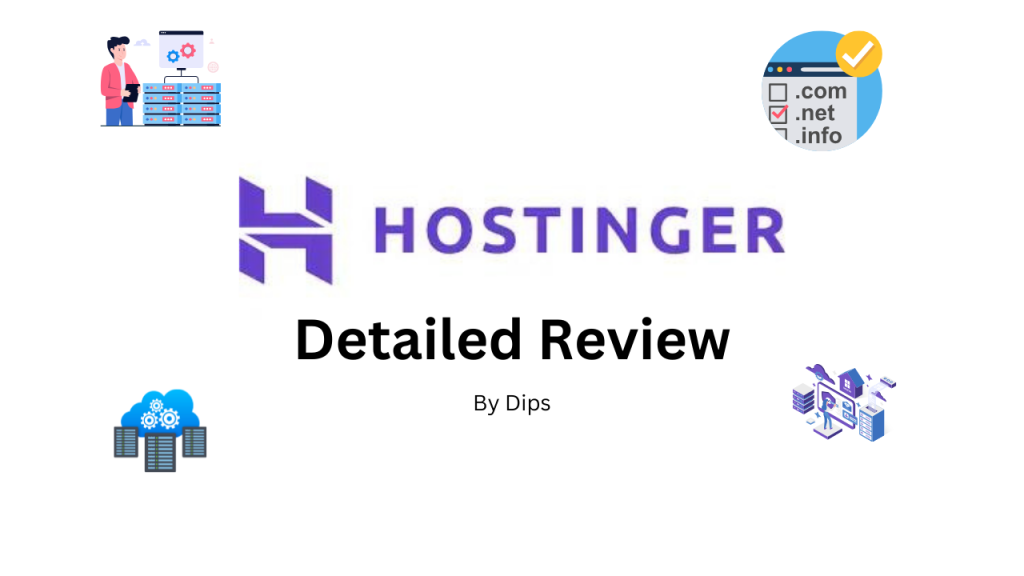When it comes to your website’s SEO (Search Engine Optimization), there are many factors to consider, and one of the most crucial, yet often overlooked, is web hosting. While it may not seem directly related to your search engine rankings, the choice of web hosting can significantly impact your site’s performance. In this article, we’ll explore the role of web hosting in SEO and help you understand how choosing the right hosting provider can positively influence your website’s search engine visibility.

How Web Hosting Affects SEO
Speed:
Search engines, like Google, love websites that load quickly. In fact, site speed is a known ranking factor. When your website loads slowly, visitors are more likely to leave, resulting in higher bounce rates and lower search engine rankings. A reliable web hosting provider with good infrastructure ensures that your site loads quickly, keeping visitors engaged and improving your SEO performance.
Uptime:
Imagine this: a potential customer tries to visit your website, but it’s down. Frustrating, right? Downtime means your website is inaccessible, which not only hurts user experience but also negatively impacts your search engine visibility. Reputable web hosting providers offer high uptime guarantees, minimizing downtime and ensuring that your website is always available to visitors and search engine crawlers.
Security:
Search engines prioritize secure websites, especially those that protect user data. A secure web hosting provider offers features like SSL certificates, which encrypt data transmitted between the user and the server. This not only protects sensitive information but also enhances your site’s trustworthiness in search engine results.
Server Location (Local SEO):
For businesses targeting a specific geographic area, server location can play a crucial role in local SEO. Hosting your website on servers located near your target audience can give you a slight edge in local search rankings. This is because search engines, like Google, consider the server location when determining the relevance of search results to a user’s location.
Choosing the Right Hosting Provider
Now that you understand the importance of web hosting in SEO, let’s take a look at some popular web hosting providers and their features:
1. Bluehost

A beginner-friendly option known for its affordability and official WordPress recommendation. They offer shared hosting plans with good customer support, but performance can vary on shared servers.
Pros:
- Beginner-friendly: Bluehost offers an easy-to-use control panel and one-click WordPress installation, making it ideal for beginners.
- Affordable: With plans starting at just $3.95/month, Bluehost is one of the most budget-friendly hosting options available.
- Good customer support: Bluehost provides 24/7 customer support via phone, live chat, and email, ensuring that help is always available when you need it.
Cons:
- Shared hosting performance can vary: While Bluehost offers good performance for small to medium-sized websites, performance can vary on shared hosting plans, especially for high-traffic websites.
- Limited scalability: Bluehost’s shared hosting plans may not be suitable for large, high-traffic websites that require more resources.
2. HostGator

Another budget-friendly choice with reliable uptime, great for beginners. Shared hosting plans are affordable, but be aware of potential upselling and higher renewal rates.
Pros:
- Affordable: HostGator offers some of the lowest prices in the industry, with shared hosting plans starting at just $2.75/month.
- Good for beginners: HostGator provides an easy-to-use control panel and one-click installation for popular CMS platforms like WordPress, making it ideal for beginners.
- Reliable uptime: HostGator guarantees 99.9% uptime, ensuring that your website is always available to visitors.
Cons:
- Aggressive upselling: HostGator is known for its aggressive upselling tactics, which can be frustrating for some users.
- Higher renewal rates: While HostGator’s introductory prices are low, renewal rates can be higher, especially after the initial term.
3. SiteGround

Known for excellent speed and performance, making it a good fit for those who prioritize website loading times. They offer developer-friendly features and good security, but shared hosting plans come at a slightly higher price point.
Pros:
- Excellent speed and performance: SiteGround’s servers are optimized for speed, ensuring fast loading times for your website.
- Good security features: SiteGround offers advanced security features, including daily backups, free SSL certificates, and proactive security monitoring.
- Developer-friendly: SiteGround provides tools and features that developers will appreciate, including support for multiple programming languages and Git integration.
Cons:
- Slightly pricier than some competitors: While SiteGround offers excellent speed and performance, its plans are slightly more expensive than some other hosting providers.
4. WP Engine

The go-to for managed WordPress hosting. Their plans are specifically optimized for WordPress websites, offering top-notch speed, security, and expert support for WordPress issues. However, these features come at a premium price, and they don’t offer many options for non-WordPress sites.
Pros:
- Excellent speed and security: WP Engine’s servers are optimized specifically for WordPress, ensuring fast loading times and robust security features.
- Great customer support for WordPress issues: WP Engine’s customer support team is knowledgeable about WordPress and can help with any issues or questions you may have.
- Daily backups: WP Engine automatically backs up your website every day, so you can rest assured that your data is safe.
Cons:
- More expensive than shared hosting: While WP Engine offers excellent performance and security, its managed WordPress hosting plans are more expensive than shared hosting plans.
- Limited options for non-WordPress sites: WP Engine specializes in WordPress hosting, so if you have a non-WordPress website, you may need to look elsewhere.
5. DreamHost

A solid option for beginners and WordPress users, with affordable shared hosting plans that include free SSL certificates and email. However, upselling can be present, and renewal rates might be higher.
Pros:
- Affordable: DreamHost offers some of the lowest prices in the industry, with shared hosting plans starting at just $2.59/month.
- Good for beginners and WordPress users: DreamHost provides an easy-to-use control panel and one-click installation for WordPress, making it ideal for beginners and WordPress users.
- Free SSL certificates and email: DreamHost includes free SSL certificates and email with all of its hosting plans, ensuring that your website is secure and professional.
Cons:
- Upselling can be present: Like many hosting providers, DreamHost engages in upselling tactics, which can be frustrating for some users.
- Renewal rates might be higher: While DreamHost’s introductory prices are low, renewal rates can be higher, especially after the initial term.
Important Note: Pricing is often based on introductory offers and can change upon renewal. Be sure to check the provider’s website for the latest pricing structure. Remember, the best hosting provider depends on your specific needs and budget. Consider factors like traffic volume, website type (e.g., WordPress), and desired features when making your choice.
FAQ
Q: Can I switch my web hosting provider without affecting my SEO?
A: Yes, you can switch web hosting providers without negatively impacting your SEO, as long as you follow best practices and ensure minimal downtime during the migration process.
Q: How do I know if my website is loading fast enough?
A: You can use tools like Google’s PageSpeed Insights or GTmetrix to analyze your website’s speed and identify areas for improvement.
Q: Does the location of my web hosting server affect my SEO?
A: Yes, especially for local SEO. Hosting your website on servers located near your target audience can give you a slight edge in local search rankings.
Q: Is shared hosting good for SEO?
A: Shared hosting can be suitable for small to medium-sized websites, but performance can vary depending on the provider. It’s essential to choose a reliable hosting provider with good infrastructure to ensure optimal SEO performance.
Conclusion
In conclusion, web hosting plays a crucial role in your website’s SEO performance. Factors like speed, uptime, security, and server location can all impact your search engine rankings. By choosing a reliable web hosting provider that offers excellent performance and features, you can improve your site’s SEO and provide a better experience for your visitors. Remember to consider your specific needs and budget when selecting a hosting provider, and don’t hesitate to reach out to their customer support if you have any questions or need assistance.

